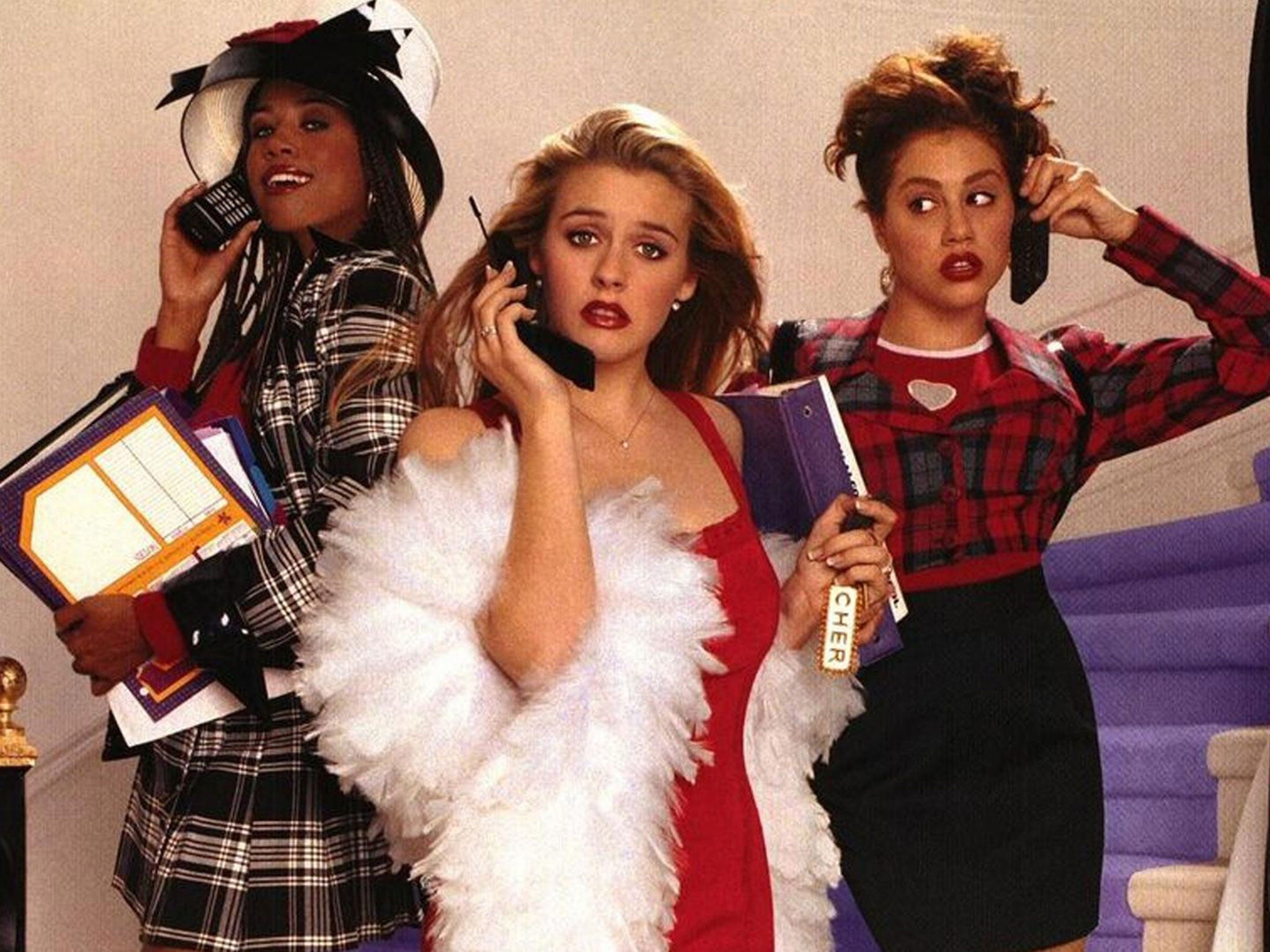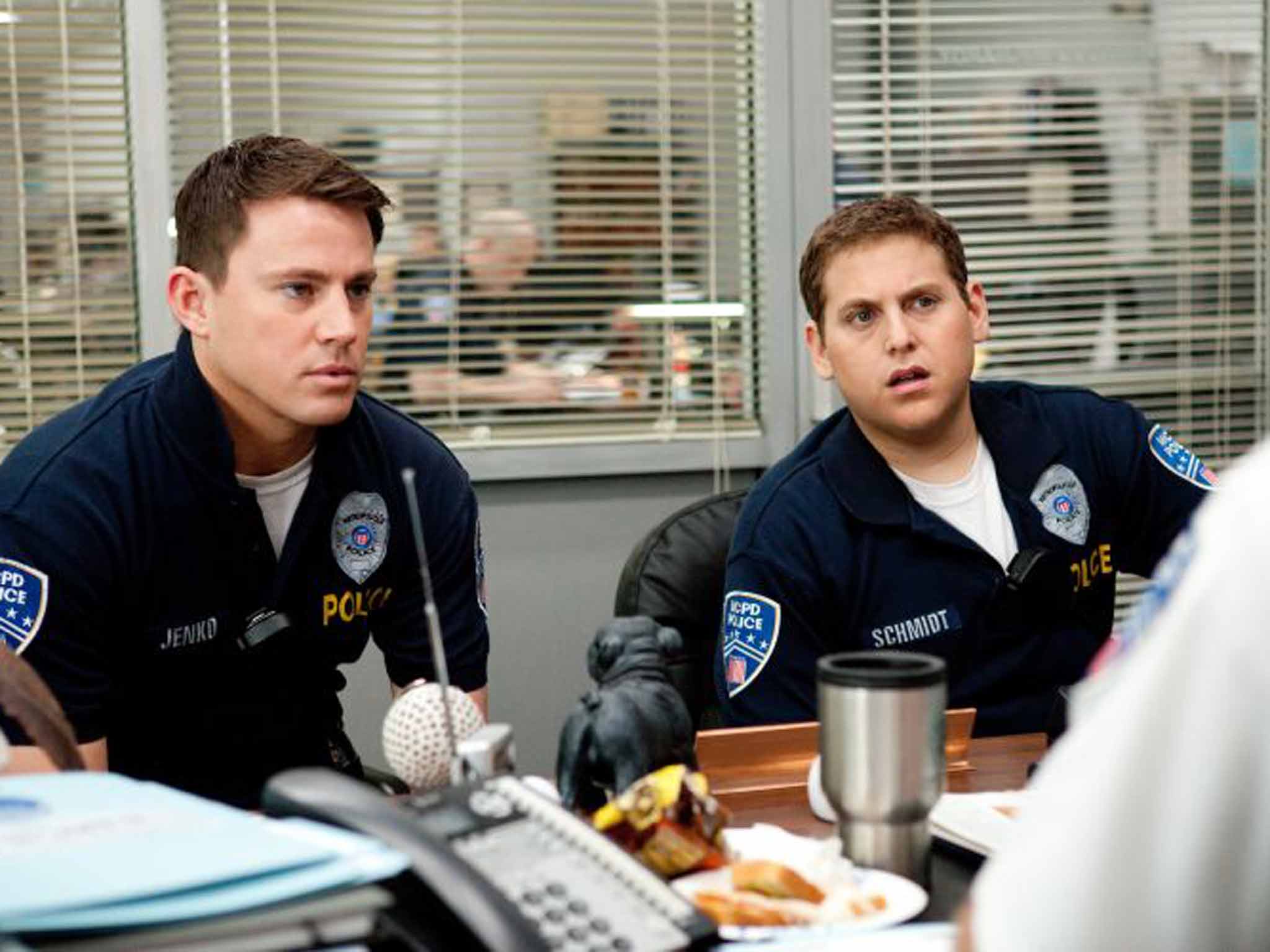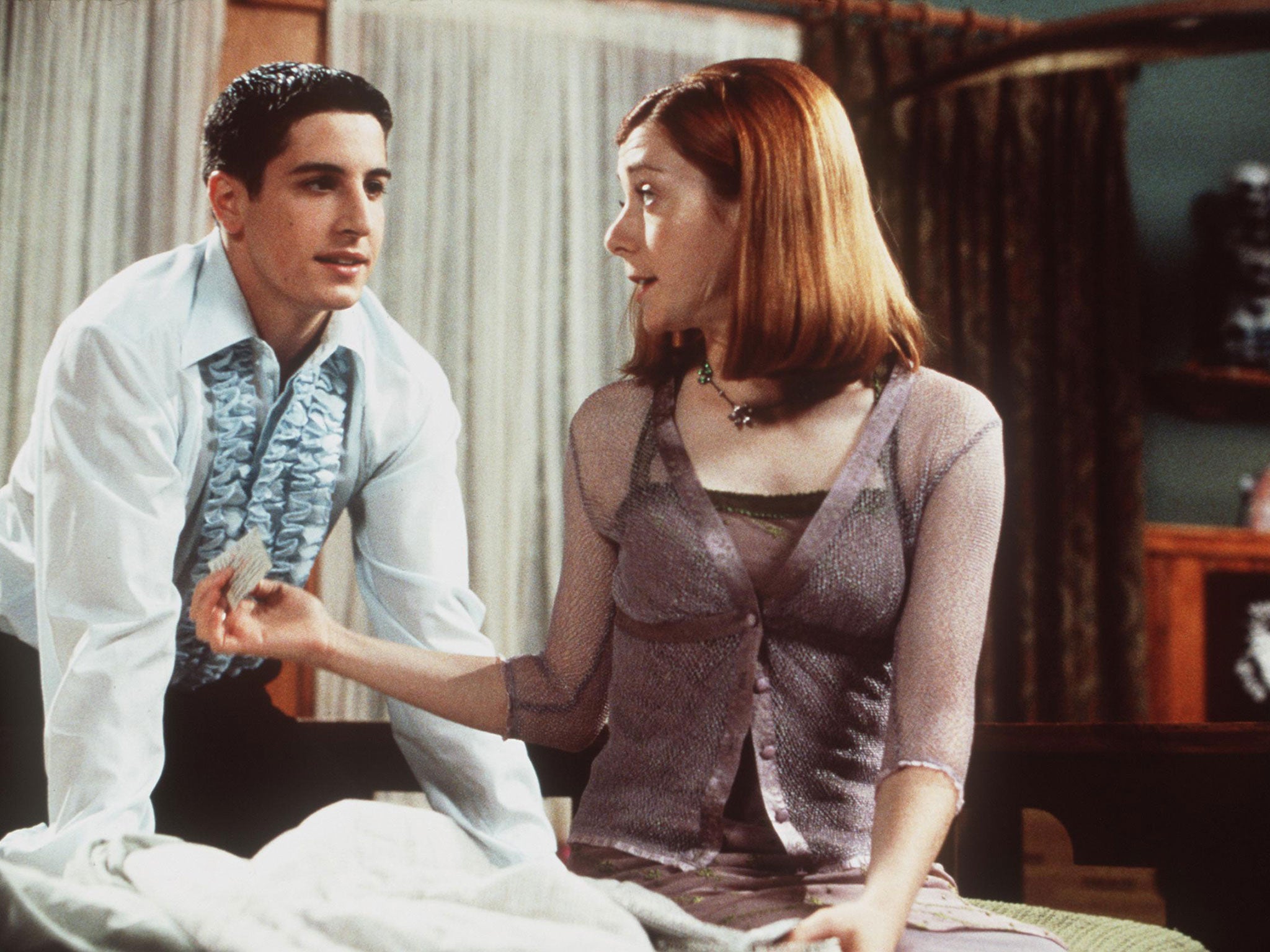A teen movie manifesto: 10 lessons that all future efforts should heed
The director of new documentary 'Beyond Clueless' lays some basic ground rules for teen films

Your support helps us to tell the story
From reproductive rights to climate change to Big Tech, The Independent is on the ground when the story is developing. Whether it's investigating the financials of Elon Musk's pro-Trump PAC or producing our latest documentary, 'The A Word', which shines a light on the American women fighting for reproductive rights, we know how important it is to parse out the facts from the messaging.
At such a critical moment in US history, we need reporters on the ground. Your donation allows us to keep sending journalists to speak to both sides of the story.
The Independent is trusted by Americans across the entire political spectrum. And unlike many other quality news outlets, we choose not to lock Americans out of our reporting and analysis with paywalls. We believe quality journalism should be available to everyone, paid for by those who can afford it.
Your support makes all the difference.Teen movies are like buses, only more so: you wait forever for one and then 300 come along at once. In 1995, following a lengthy dry spell, the teen genre was spectacularly reborn in a blaze of weird and wonderful movies that spoke to teenagers head-on and took pleasure in rejecting received notions of adolescence on screen. The triple threat of Clueless, Empire Records and Mallrats gave rise to a decade of unparalleled production that spawned teen movies of every shape and size, from Mean Girls to Mean Creek; Scream to Spider-Man.
For the best part of a decade, such films reigned at the box office, restoring the teen genre to its place at the height of Hollywood’s estimations. It’s hard to imagine now, but in the late 1990s, the slasher sequel Scream 2 was considered such a surefire box office hit that the release of Titanic was pushed back to avoid direct competition. These were the movies I grew up on, and they’re the ones examined in my new film Beyond Clueless, a portrait of the teen genre in all its fevered contradictions.
After 10 years at the top, teen movies fell back into the shadows, as teenage characters were absorbed into mainstream hits, such as the Transformers and X-Men franchises, that cared little for the realities of adolescence. By the beginning of 2005, release schedules were largely bare of teen-focused material, with the inglorious exception of the miserable Paris Hilton-starring House of Wax remake.

Today, teen movies are on the ascent once more, with films such as Project X, The Bling Ring and Spring Breakers proving unexpected box office hits and significant cultural touchstones for the selfies-and- Snapchat set. And because the first few years of any escalating movement can be a tender time, now might be a good moment to lay down a few governing principles for the teen movies of tomorrow.
1. Get with it, grandad
A good teen movie should not cause the average 16-year-old to cringe. And given the adolescent propensity for cynicism, that’s no mean feat. But rather than blindly guessing at how teenagers talk, what they wear, and who they look up to, why not find out for yourself? I’ve seen more than one contemporary teen movie in the last 12 months in which adolescents are seen clutching porn magazines – an inaccuracy that could have been remedied by a five-minute conversation with an actual teenager, or a five-second browse through their search history.
2. Recognise that puberty is a real thing that’s kind of awful
For every film that tackles the reality of teenage life head-on, a dozen more employ adolescent characters for entirely mercenary reasons. Do you really think Transformers had teenage protagonists because the story demanded it, or because it gave Michael Bay an excuse to stick Megan Fox in a crop top and have her bend over a carburettor? So here’s the deal: you can reap the benefits of teenagers’ lithe bodies and rebellious spirits, as long as you put up with their angst and alienation.
3. Update your idea of cliques
There’s a great scene in 21 Jump Street in which Jonah Hill and Channing Tatum – as undercover cops preparing to infiltrate a local high school – assume the demeanour of arrogant jocks in an effort to fast-track themselves to popularity. On arriving at school, however, they find an environment that bears almost no similarity to the one they grew up in. Instead, the cool kids can be found studying intently and riding their bikes to school in an effort to reduce carbon emissions. It should really have come as no surprise: when even the most troubled of social misfits can find a million like-minded souls at the click of a button on Tumblr, the traditional hierarchies of high school life are bound to bend and break.

4. Forget your forebears
Few teen movies in recent years have done as much to revitalise the genre as Pitch Perfect, a film with a unique angle on adolescence (as seen through the prism of competitive a capella) and a genuinely engaging young cast. The only thing weighing the film down was its entirely unnecessary reverence for the teen movies that preceded it, perhaps most evident in the scene in which a 19-year-old boy introduces a female friend to The Breakfast Club, describing it as “equally beautiful and sad” like some kind of wistful, middle-aged film critic. It’s hardly what John Hughes would have wanted: like all great teen-film makers, he recognised the value of built-in obsolescence.
5. Get technology right
In the 1990s, a certain amount of confusion surrounding personal computers was an understandable side effect of their rapid rise to cultural dominance. Teen thrillers such as Hackers and Antitrust played a significant role in this, as did every teen horror movie in which the protagonist uncovered a centuries-old curse by performing a quick search on Altavista. Today though, there’s no excuse for getting the relationship between teens and tech wrong, so here are a few pointers: yes, most teenagers know how to find their way around the internet; no, they don’t spend all their time in chat rooms; yes, they do trade nude photos with one another; no, they’re not all semi-professional hackers.

Watch Apple TV+ free for 7 days
New subscribers only. £8.99/mo. after free trial. Plan auto-renews until cancelled

Watch Apple TV+ free for 7 days
New subscribers only. £8.99/mo. after free trial. Plan auto-renews until cancelled
6. Realise that teens know more about sex than they used to
Just 15 years ago, the idea of a 17-year-old boy tossing off to blurry cable television and simulating third base by sticking his fingers into baked goods seemed perfectly reasonable. Today, Jason Biggs’s character in American Pie would have 70+ Pornhub subcategories at his disposal and could order himself a Fleshlight in the time it takes an apple pie to cool down. The internet has rapidly accelerated the rate at which teenagers develop their understanding of sexuality, by ensuring that a simple Google search is all that separates wondering what a “blow job” is, and watching one unfold in glistening 1080p.

7. Don’t fear a harsh rating
Hollywood studios exert increasing pressure on teen movies to seek softer ratings – specifically the American PG-13 certificate, which opens up a film to audiences of all ages. Of course, it’s understandable to want your teen movie to be accessible to actual teenagers, but is it worth eradicating the reality of teenage life in the process? The teen sci-fi movie Chronicle secured a PG-13 rating by cleansing the vocabularies of its super-powered teenage heroes, meaning the least realistic aspect of the film was not their ability to fly alongside jumbo jets, but their failure to scream “fuck yeah!” while doing so.
8. Stop holding teens back
Teen movies have a strong tradition of unchecked prejudice. John Hughes was revered in the 1980s for making films that broke down barriers and spoke directly to adolescents, but he never made a teen movie with a non-white or non-straight lead. The representation of queer teens increased during the 1990s, but LGBT characters were still deployed mostly as stereotypes. Even today, the depiction of women as objects and black people as set dressing continues in teen movies, and it feels more archaic than ever. The last thing the teen genre should be is a closed shop.
9. Return to the days of the $30 million budget
One explanation for the relative obscurity of teen movies in the “contemporary filmmaking landscape” is their reliance on mid-level budgets, acknowledged to have disappeared from Hollywood’s game plan. Today, teenage cinema goers can choose between uber-low-budget projects such as the upcoming Expelled and bloated dystopian blockbusters such as Divergent. The chances of a breakthrough hit in the mould of She’s All That, or Sixteen Candles, are small while teen movies are limited to shooting either on a shoestring or on a budget the size of Guam’s GDP.
10. Piss people off
Every self-respecting teen movie should elicit at least some degree of derision from audience members over 40. That’s why the 2012 house party movie Project X is the closest we’ve come to a truly modern teen movie in recent years. While teenagers propelled the film to a worldwide gross of over $100m, adult critics wheeled out their lowest star ratings and sharpest one-liners – “the most repellent party this side of the BNP” wrote Metro. Where teen movies are concerned, this kind of reaction is the holy grail. After all, who wants a thumbs up from the very establishment you’re supposed to be railing against?
‘Beyond Clueless’ tours UK cinemas throughout January. Screening details: beyondclueless.co.uk
Join our commenting forum
Join thought-provoking conversations, follow other Independent readers and see their replies
Comments